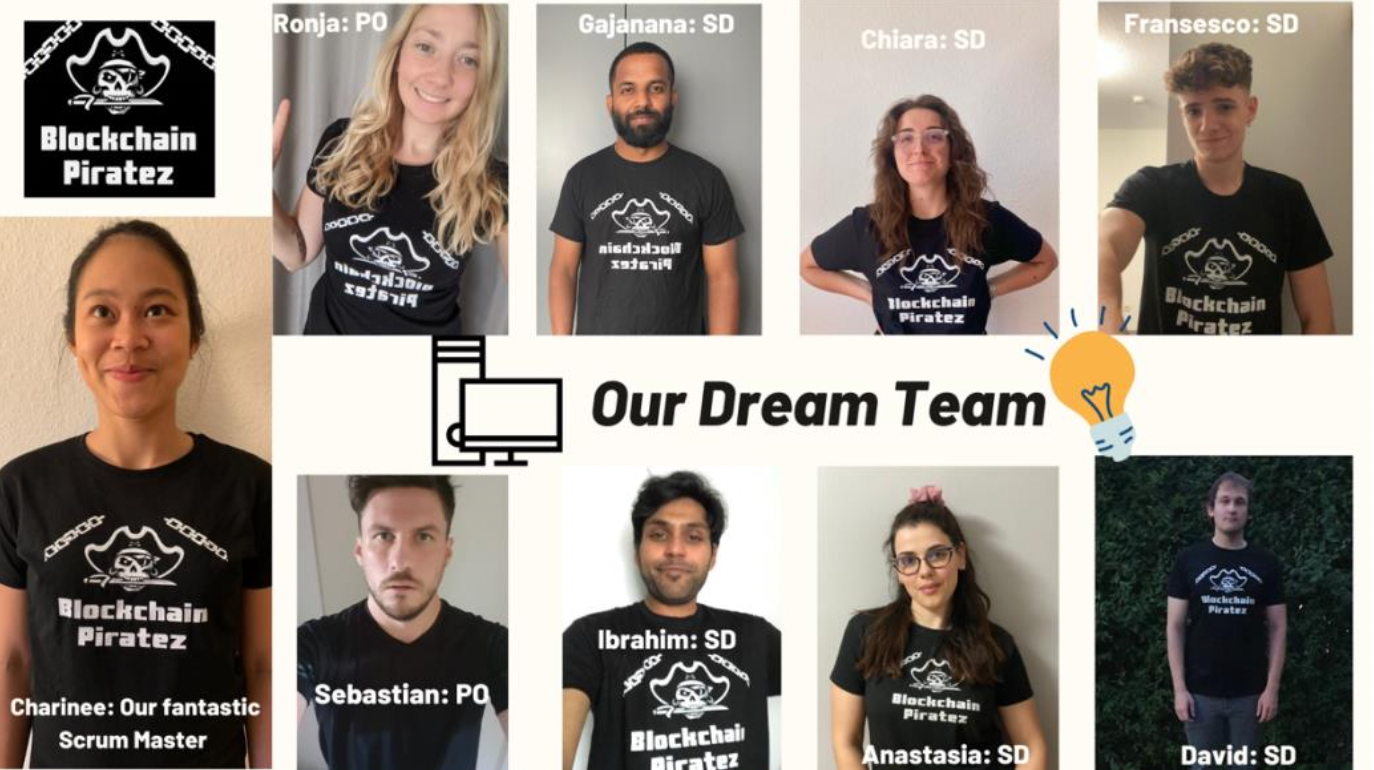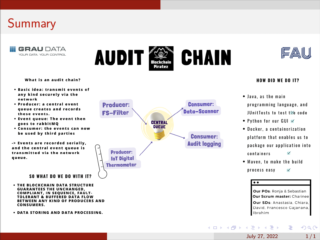This project is one of eight Scrum projects with industry partners that were part of the Summer 2022 AMOS Projects. Below please find the video (you may also like the other videos) and the project summary which details the final result of the project. We run these projects every semester, so please be in touch if you would like to motivate one of your own!
Project Summary
| Project name | Audit Chain |
| Project mission | The mission is to deliver a MVP of a audit-proof recording of file system events to Grau Data. For this purpose, there is a central event queue which receives events from a producer and provides them a consumer, which is built on an underlying blockckain data structure. Finally, the event will be copied in a second consumer and will be deleted from the event queue. |
| Industry partner | GRAU DATA |
| Team logo |  |
| Project summary | Our project is developed following a dependency structure, typical of the audit chain module. The main idea is that events of any kind, like IoT, file systems, and measurement loggers should be transmitted securely via the network. There is a central event queue, which creates and records these events (producer). After the producer successfully generates an event, it goes to RabbitMQ (event queue) and uses them for further steps that would involve third parties (consumer). Events are recorded serially, and the central event queue is transmitted via the network queue. To achieve this goal, we used a variety of technology stack such as Java as a main programming language and Python for the implementation of GUI. Also, we installed Docker so our system resources can be used efficiently (consume less main memory, easy to port etc), and installed JUnittests to make sure that nothing in the code is broke. |
| Team photo |  |
| Project repository | https://github.com/amosproj/amos2022ss02-audit-chain |
| Additional information | Our team consisted of 7 Master students, 2 Erasmus undergraduate students and our industry partner was GRAUDATA. By the end of the Sprint-08 we had already reached our main goal and we decided to add some additional features in our project! |

